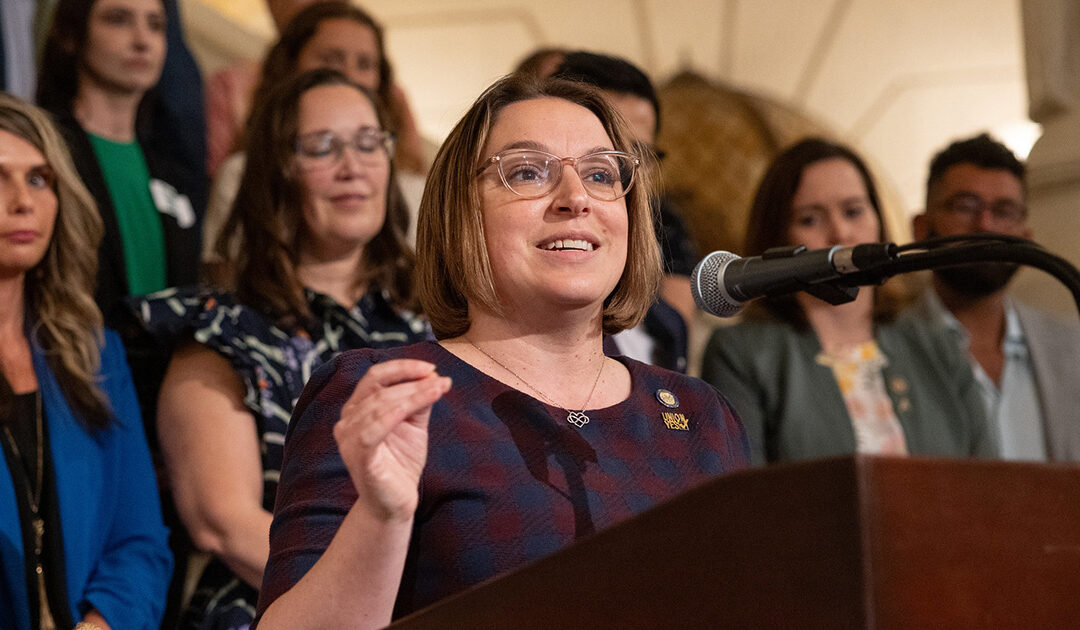Harrisburg, PA − May 5, 2025 − Today Senator Lindsey M. Williams (D-Allegheny), Senator Judy Schwank (D-Berks), and Rep. Jeanne McNeill (D-133) announced their intent to champion Governor Shapiro’s legislation to support working families across Pennsylvania by strengthening and expanding our childcare workforce.
“Childcare is the industry that allows every other workforce to function by ensuring that parents and families are able to get to work, knowing that their children are safe, happy, and learning throughout the day,” said Senator Williams. “In that way, this investment in childcare doesn’t just boost our current workforce—it gives the workforce of tomorrow, our youngest learners, a head start on learning and development.”
“Workers like teachers and childcare center staffers are imperative and vital to ensuring our kids are safe and have proper guidance from a young age,” said Rep. McNeill. “Unfortunately, there has been a shortage of childcare workers, only exacerbated by the COVID-19 pandemic, and this is a crisis that is still ongoing. This legislation will help in the recruitment and retention of these workers, so that these essential workers remain plentiful in this job field and can properly care for our children to ensure that our children are getting the highest quality care and dedication.”
“Childcare providers across Pennsylvania are making it clear they can’t retain the staff they need to operate their centers at full capacity,” said Senator Schwank. “Our recruitment and retention proposal will help put more early childhood educators in classrooms and open up more slots for children. This proposal supports parents and guardians who depend on reliable childcare to work and provide for their families while also respecting the essential labor of early childhood educators.”
According to the U.S Chamber of Commerce, Pennsylvania currently has 340,000 open jobs, but only 66 available workers for every 100 job openings. The state’s labor participation rate of 69.1% trails the national average and constitutes a challenge to Pennsylvania’s economic growth.
One of the leading causes of this crisis is the persistent shortage of childcare workers, driven in large part by low wages that make it difficult for providers to recruit and retain staff. There are over 3,000 unfilled jobs in childcare across Pennsylvania. If those jobs were filled, an estimated 25,000 more children could have access to quality childcare.
By investing funding proposed by Governor Shapiro’s 2025-26 budget in recruitment and retention bonuses for licensed childcare providers participating in the Child Care Works program, childcare centers would be able to provide competitive wages to caregivers. This investment would not only help stabilize our childcare workforce and provide quality care and education to our youngest learners, but it will also support the broader workforce and strengthen Pennsylvania’s economy by keeping parents from leaving their jobs due to high costs or lack of childcare.
“Education Law Center remains supportive of the critical investments needed in Pennsylvania’s preschool workforce so that children receive the necessary supports they need to succeed by kindergarten, ready to learn on day one,” said Deborah Gordon Klehr, Executive Director of the Education Law Center.
“Childcare teachers are the cornerstone of high-quality early learning, nurturing children during the most critical period of brain development and providing a safe, supportive environment while parents work,” said Cara Ciminillo, Executive Director, Trying Together. “The childcare staffing crisis affects us all and undermines economic development. This investment and legislation will expand access to childcare and help remove a major barrier for working families and employers.”
“Parents can’t afford to pay more, and childcare teachers can’t afford to keep working for poverty wages,” said Heather Wells, Child Care Director/Owner, The Growing Garden Child Care in Tarentum. For too long, early educators have been undervalued, despite the vital role we play in shaping young minds. This investment gives us hope that our skills and dedication are finally being recognized. It’s not just a win for early childhood educators—it’s a win for children, families, and our entire community.”
###

